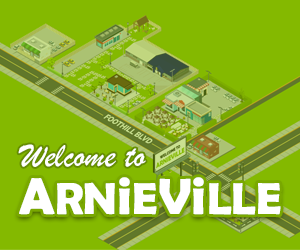In what might be the latest sign of things to come, a rabbi in New York has become the first Jewish teacher to deliver a sermon written entirely by artificial intelligence.
Before teaching on Genesis 44, Rabbi Joshua Franklin of the Jewish Center of the Hamptons in New York, told his congregation that his AI-written sermon was, in fact, written by ChatGPT, according to the Times of Israel.
“We’re going to do something new tonight, maybe something at first you’re going to say is unethical, but I’m going to do it anyways,” Franklin said during the message in early January.
The rabbi began reading the lesson on Genesis 44:18, when Judah pleads with Joseph for the release of Benjamin, offering himself as a slave instead. Joseph then reveals his true identity to the brothers who betrayed him.
When he was finished, he revealed the truth.
“Artificial intelligence wrote that. It constructed it. Look, if I read that, I would know the various faux pas. There are distinctive markers that aren’t how many rabbis would speak,” he told the congregation.
| Read More: Biblical Guidance in the AI Age: Exploring the Role of Open AI ChatGPT for Christians |
Following the crowd’s reaction and applause, Franklin said the real issue is how AI will impact what the world considers spiritual.
“How does spirituality function in a world that’s driven by data and driven by information?” Franklin asked.
That’s a question that theologians have grappled with for decades as AI has leapfrogged from the simple task management of Siri and other gadgets to being used to design self-flying planes, paint works of art and even consider “moral dilemmas” for AI-driven “driverless” cars.
But when it comes to the pulpit, most pastors are unlikely to be left unscathed by the age of AI, according to theologian and bestselling author Wallace Henley, who said he was “stunned” to learn about the rabbi’s sermon.
“I’ve certainly used the computer to do research and develop outlines,” Henley told The Christian Post. “But when it comes to doing a full manuscript as the machine itself, putting together all of those elements, I’m stunned.
“The great question is, what are we going to allow the machines to do to and for us, and what are we going to govern ourselves? And so, it stuns me that an entire sermon can be developed, not just the research.”
In a recent CP column titled “Can artificial intelligence worship God?,” Henley warned that the Church faces a coming “spiritual crisis” that will be grounded in what he calls the “ultimate idolatry, which is the worship of the machine.”
“We’ve got to understand the spiritual crisis that’s coming, and the spiritual crisis is going to be the ultimate idolatry, which is the worship of the machine. And already, we’ve seen many signs of that,” he wrote.
Henley told CP the context for that looming crisis will be the potential for a world brimming with AI-gleaned data but lacking the spirit which comes from God alone.
“We human beings are wired for transcendence, we are spirit, soul and body. You can make a machine that has a kind of body, you can even attribute some level of soul to a machine, that is, by putting in certain values that it’s supposed to think about before it does anything, but you cannot put a spirit in that machine,” he said.
“This is what distinguishes a human being … that spirit hungers for God like the body hungers for water and for oxygen.”
In 2020, a New York-based engineer created an AI algorithm programmed to read passages of Scripture from the King James Bible “and nothing else.”
George Durendal used a natural-language processing system that ultimately led the AI to “read, speak and write using nothing but the Bible,” the engineer wrote in August 2020.
So where does that leave pastors and ministers whose entire livelihoods are based on teaching and preaching the Word of God?
While Henley believes AI can help communicate the Gospel more efficiently and research how to do so, he warns about potentially unexpected consequences.
“If we begin to allow the AI machine to shape our theology or drive the ethical values and so forth and dictate that to us, then we’re in trouble,” he said. “Yes, the church must use and accept AI as a means of helping its performance task, but the Church must not become an idolater … in the sense of fresh revelation or a substitute for the Holy Spirit.
“That will never satisfy us.”




